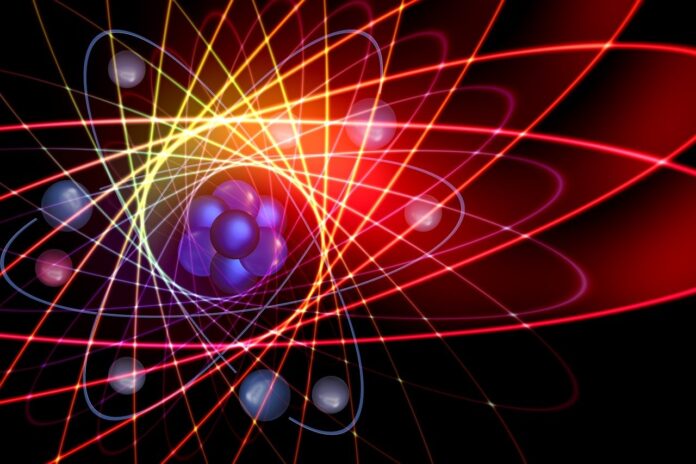In the ever-evolving landscape of information science, a revolutionary paradigm has emerged—one that leverages the unique properties of quantum mechanics to encode, transmit, and process information. This paradigm is known as quantum information theory, and it offers a tantalizing glimpse into a future where information processing transcends the limits of classical computation. In this article, we embark on a journey into the depths of quantum information theory, exploring its fundamental principles, remarkable applications, and the transformative potential it holds for the future of technology.
The Quantum Revolution
Quantum information theory arises from the profound insights of quantum mechanics—a theory that governs the behavior of particles at the microscopic level. It introduces a new way of understanding and manipulating information by harnessing the fundamental properties of quantum systems.
Unlike classical bits, which represent information as either 0 or 1, quantum bits, or qubits, can exist in a superposition of both states simultaneously. This unique feature of qubits enables the encoding and processing of exponentially more information than classical bits.
Quantum Entanglement: The Key to Quantum Information
At the heart of quantum information theory lies the concept of entanglement. Quantum entanglement allows for the correlation of qubits, even when they are physically separated. When qubits become entangled, their states become inherently linked, regardless of the distance between them.
Entanglement is a fundamental resource in quantum information theory, enabling the secure transmission of information, the implementation of quantum algorithms, and the development of quantum communication networks.
Quantum Communication: Secure and Unbreakable
Quantum communication, a cornerstone of quantum information theory, offers a paradigm shift in secure information transmission. Quantum cryptography harnesses the principles of quantum mechanics to guarantee the privacy and integrity of information exchange.
By exploiting the delicate nature of qubits, quantum communication protocols can detect any attempt to intercept or eavesdrop on transmitted information. This promises unbreakable encryption methods that safeguard sensitive data in an era of increasing cyber threats.
Quantum Computing: Computing Beyond Boundaries
Quantum computing stands as a centerpiece of quantum information theory, holding the potential to revolutionize computational power. Quantum computers harness the properties of qubits, such as superposition and entanglement, to perform computations on a scale that surpasses classical computers.
Quantum algorithms, such as Shor’s algorithm for factoring large numbers, promise to crack cryptographic codes that would take classical computers centuries to decipher. Additionally, quantum simulation algorithms enable the study of complex quantum systems, revolutionizing fields such as drug discovery, materials science, and optimization problems.
Quantum Error Correction: Protecting Fragile Quantum States
The fragility of qubits poses a significant challenge in harnessing the power of quantum information. Quantum error correction techniques provide a solution by protecting quantum states from the detrimental effects of noise and decoherence.
By redundantly encoding information in multiple qubits, quantum error correction codes can detect and correct errors that occur during quantum operations. These techniques are essential for preserving the integrity of quantum computations and ensuring the reliability of quantum communication protocols.
The Path Ahead: Challenges and Promise
Quantum information theory is not without its challenges. The delicate nature of qubits, the susceptibility to noise, and the difficulty of implementing large-scale quantum systems are all areas of active research.
However, significant progress has been made, and quantum information theory holds immense promise. As researchers refine their understanding of quantum systems, develop better error correction codes, and overcome technical obstacles, the potential for quantum information processing to transform industries and scientific discovery becomes increasingly tangible.
The Quantum Information Revolution
Quantum information theory represents a paradigm shift in our approach to information science. It unlocks the immense power of quantum mechanics,enabling us to encode, transmit, and process information in ways that were once thought impossible.
The journey into the depths of quantum information theory is a testament to human ingenuity, curiosity, and our relentless pursuit of knowledge. It opens doors to a future where quantum computers solve complex problems, quantum communication guarantees unbreakable security, and quantum algorithms revolutionize industries.
As we continue to explore the intricacies of quantum information, we push the boundaries of what is possible. Researchers around the world are collaborating to develop more efficient qubit technologies, refine quantum algorithms, and explore new avenues for quantum communication.
The transformative potential of quantum information theory reaches far beyond traditional computing. It holds promise for optimizing supply chains, accelerating drug discovery, enhancing artificial intelligence, and tackling global challenges in fields ranging from finance to climate modeling.
The future of quantum information theory is filled with excitement and anticipation. As our understanding deepens and technological advancements accelerate, we are poised to unlock new frontiers in information science.
The quantum information revolution has only just begun. It is a revolution that transcends the boundaries of classical information processing, propelling us into an era where the power of quantum mechanics unlocks unimaginable possibilities.
As we continue to unravel the mysteries of quantum information, we unlock the potential to transform the way we live, work, and interact with the world. The journey into quantum information theory is a testament to our insatiable thirst for knowledge and our unwavering determination to push the boundaries of what is possible.
In the realm of quantum information theory, we glimpse a future where the unbreakable security of quantum communication networks, the unimaginable power of quantum computers, and the vast knowledge unlocked by quantum algorithms redefine our understanding of information.
It is an exciting time to witness the birth of the quantum information age—a time when the power of quantum mechanics merges with the boundless potential of information, propelling us into a future where the limitations of classical computing become a thing of the past.




